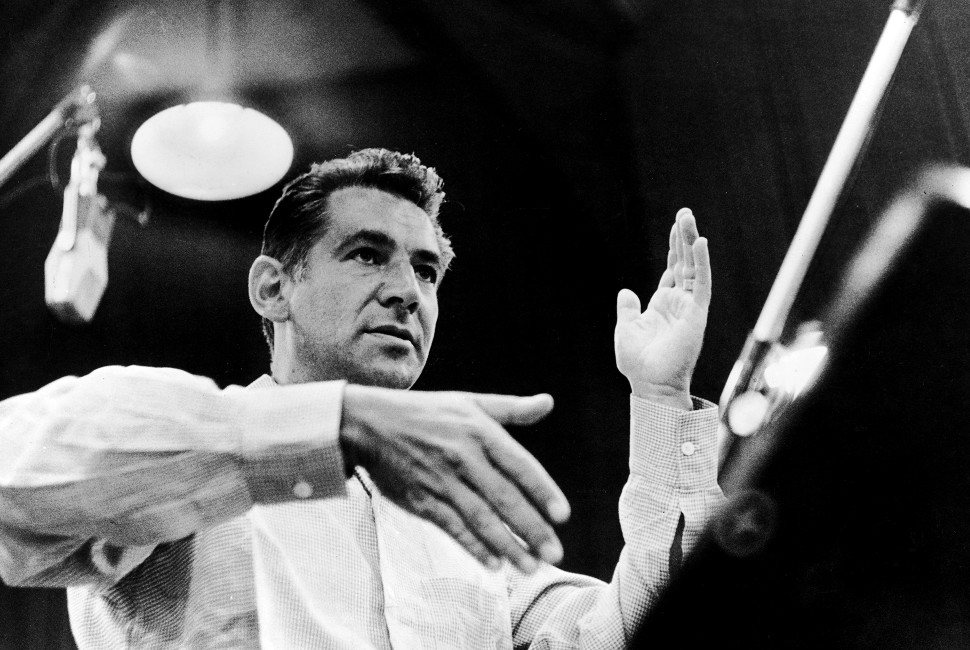Bradley Cooper’s newest film, “Maestro” is getting lots of Oscar buzz. Following a limited theatrical release, the biopic about the life of famed American conductor and composer Leonard Bernstein will begin streaming Dec. 20 on Netflix.
While Bernstein wrote in many musical genres, his best known work is the Broadway musical “West Side Story,” — the symphonic dances from which were performed in 2018 by the Northwestern University Symphony Orchestra and conducted by professor emeritus Victor Yampolsky.
Bienen School of Music associate professor and chair of the department of music studies Drew Edward Davies often teaches Bernstein in his classes. He shared with Northwestern Now his thoughts about Bernstein in the world of music.
Witness to his awesome presence
Growing up near New York City, I am just old enough to remember seeing Leonard Bernstein conduct at Lincoln Center several times during the 1980s and witnessing the awesome presence he brought to orchestral music.
Bernstein transcended boundaries — as a composer, as a humanitarian, as an educator.
Advocate for Mahler
Not least among Bernstein’s accomplishments was his advocacy for the music of composer Gustav Mahler. Bernstein helped bring Mahler’s symphonies and songs into the standard orchestral canon. He expressed a certain transhistorical affinity toward Mahler, who was likewise a composer-conductor of European Jewish heritage, and who died only seven years before Bernstein’s birth.
Bernstein strove to give voice to American diversity as far back as the 1940s with “On the Town.” His selection of texts for “Songfest,” a cantata to mark the U.S. Bicentennial, aimed to be inclusive across categories of race, sexual orientation, gender and national origin.
Ceremonial artistic statesman
No other figure in 20th-century music served as a ceremonial artistic statesman — on a global scale — to the extent Bernstein did. He memorialized iconic historical events from the death of President Kennedy to the Fall of the Berlin Wall through meaningful music performance imbued with the spirit of Beethoven, Mahler, the Hebrew Psalms and everyday America — he became a celebrity, but a celebrity with substance.


